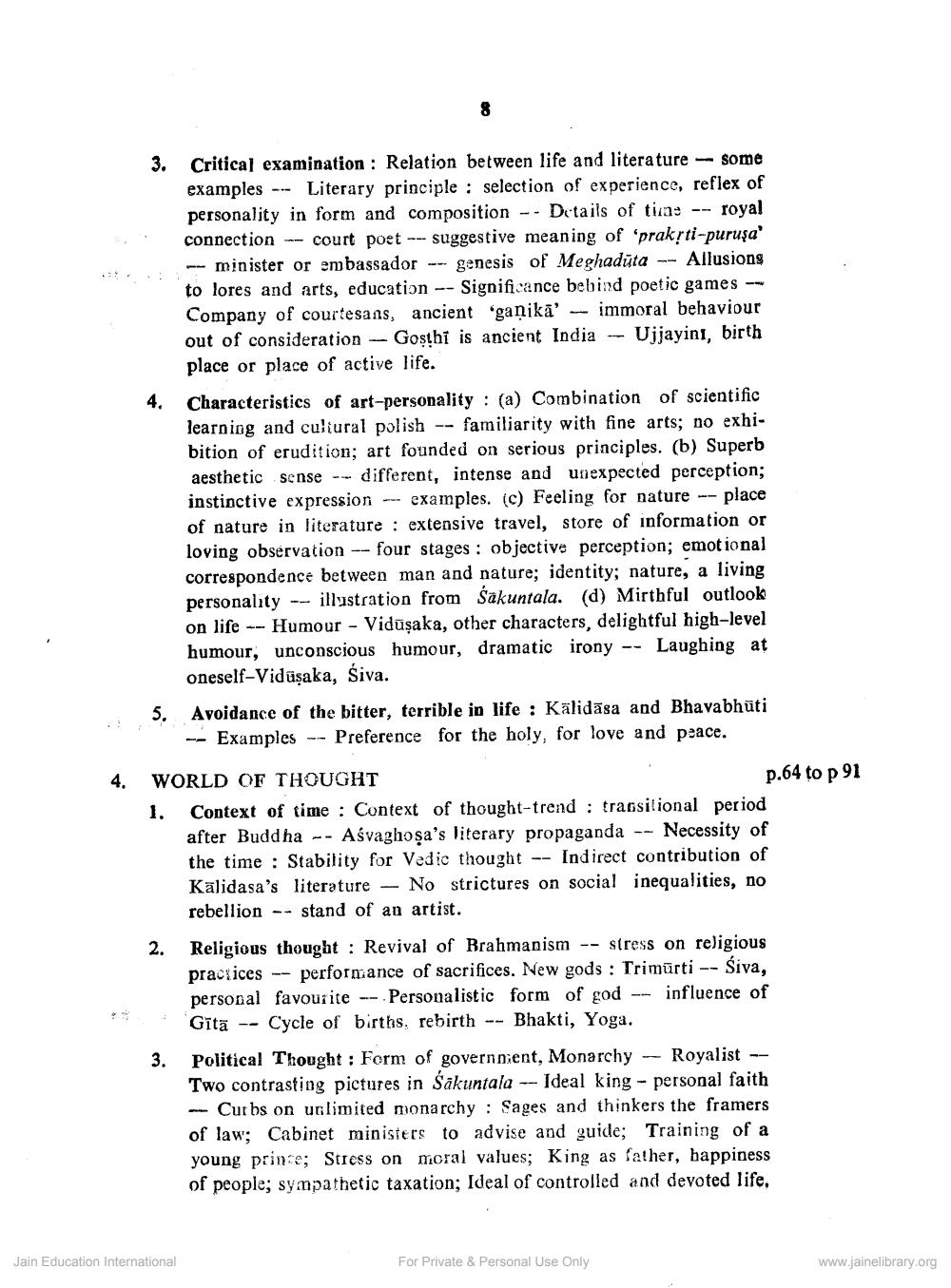________________
3. Critical examination : Relation between life and literature -- some
examples -- Literary principle : selection of experience, reflex of personality in form and composition - - Details of tiras -- royal connection -- court poet --- suggestive meaning of 'praksti-puruşa' -- minister or embassador -- genesis of Meghadūta -- Allusions to lores and arts, education -- Significance bebind poetic games -- Company of courtesans, ancient 'ganikā' - immoral behaviour out of consideration - Gosthi is ancient India - Ujjayini, birth place or place of active life. Characteristics of art-personality : (a) Combination of scientific learning and cultural polish -- familiarity with fine arts; no exhibition of erudition; art founded on serious principles. (b) Superb aesthetic sense -- different, intense and unexpected perception; instinctive expression -- examples. (c) Feeling for nature -- place of nature in literature : extensive travel, store of information or loving observation -- four stages : objective perception; emotional correspondence between man and nature; identity; nature, a living personality -- illustration from Śakuntala. (d) Mirthful outlook on life -- Humour - Vidūşaka, other characters, delightful high-level humour, unconscious humour, dramatic irony -- Laughing at
oneself-Vidūşaka, Śiva. 5. Avoidance of the bitter, terrible in life : Kālidāsa and Bhavabhūti
-- Examples --- Preference for the holy, for love and peace.
2.
4. WORLD OF THOUGHT
p.64 to p 91 1. Context of time : Context of thought-trend : transitional period
after Buddha -- Ašvaghosa's literary propaganda -- Necessity of the time : Stability for Vedic thought -- Indirect contribution of Kālidasa's literature – No strictures on social inequalities, no rebellion -- stand of an artist. Religious thought : Revival of Brahmanism -- stress on religious practices -- performance of sacrifices. New gods : Trimārti -- Śiva, personal favourite -- Personalistic form of god -- influence of Gītā -- Cycle of births, rebirth -- Bhakti, Yoga. Political Thought : Form of governnent, Monarchy - Royalist -- Two contrasting pictures in Sakuntala -- Ideal king - personal faith - Curbs on uulimited monarchy : Sages and thinkers the framers of law; Cabinet ministers to advise and guide; Training of a young prinde; Stress on moral values; King as father, happiness of people; sympathetic taxation; Ideal of controlled and devoted life,
3.
Jain Education International
For Private & Personal Use Only
www.jainelibrary.org




